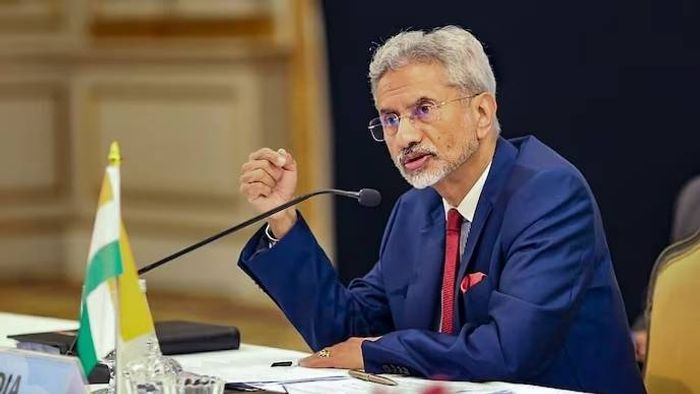S Jaishankar: Made Pakistan's policy irrelevant by not playing their game
External Affairs Minister S Jaishankar on Tuesday said that Pakistan's core policy has been to "use cross-border terrorism to bring India to the table", adding that India made that policy irrelevant by "not playing that game now".

- Jan 02, 2024,
- Updated Jan 02, 2024, 2:53 PM IST
External Affairs Minister S Jaishankar on Tuesday said that Pakistan's core policy has been to "use cross-border terrorism to bring India to the table", adding that India made that policy irrelevant by "not playing that game now".
In an interview to a news agency, Jaishankar said, "What Pakistan was trying to do, not now but over multiple decades, was really to use cross-border terrorism to bring India to the table. That, in essence, was its core policy. We have made that irrelevant by not playing that game now."
He added, "It's not a case that we won't deal with a neighbour. After all, at the end of the day, a neighbour is a neighbour, but it is that we will not deal on the basis of terms that they set where the practice of terrorism is deemed as legitimate and effective in order to bring you to the table."
Speaking about the prevalence of the Khalistani movement in Canada, Jaishankar said that Khalistani forces have been given the "space to engage in activities harmful to India and Canada's diplomatic relationship".
EAM Jaishankar said, "The issue at heart is the fact that in Canadian politics, these Khalistani forces have been given a lot of space and have been allowed to indulge in activities which I think are damaging to the relationship, clearly not in India's interest, and not in Canada's interest either. But unfortunately, that is the state of their politics."
Speaking on the approach towards China, Jaishankar said there was a need for India to engage with China realistically, advocating for a relationship founded on mutual respect, sensitivity, and shared interests.
He reevaluated India's approach, aiming to counter China's aggressive measures and criticised the romanticised perspective of the Nehruvian era in dealings with China.
When asked if India lost to China's "mind games", he said, "I don't think we always lost out, but at various points of time, when we talk about the parts of the past today would be very difficult to understand, Panchsheel agreement is another such example. The role of confidence and assurance, the fact that we are a multiple millennia civilisation. All of this should be in our demeanour, in our standing and in the way we approach other countries."